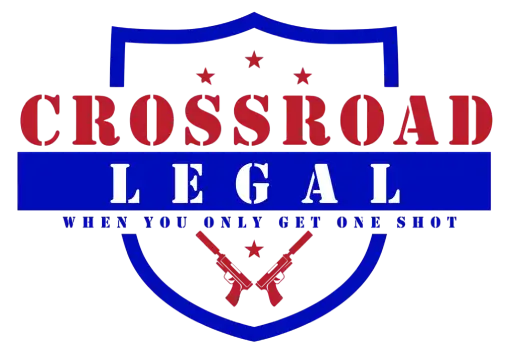Should I Take a Probation Deal?

According to 2019 crime statistics from the U.S. Department of Justice, every year, over 10 million people are arrested by police throughout America. This amounts to roughly 3 percent of the entire U.S. population. It is important to point out that simply being arrested does not make someone guilty of a crime, nor does being guilty of a crime make someone a “bad person.” A lot of things can contribute to criminal behavior, and police get things wrong sometimes. In fact, police get a lot wrong. After all, think about every argument you have ever had with a loved one. People often see things differently, make assumptions based on bias or bad information, and frankly, witnesses and alleged victims can lie sometimes. So, the police work off of the information they can obtain. But like all humans, they are flawed and mistakes happen. At Crossroad Legal, LLC, our team understands this. We are here to help.
One option available to many people arrested and charged with crimes is probation. Probation often feels like a magic answer, because it means getting to stay out of jail. But before you sign a plea agreement, be sure you fully understand what you are getting into.
What is Probation?
In Illinois, probation is used as an alternative form of punishment for criminal offenders. In most situations, the law actually says that probation is the preferred sentence. However, when someone has multiple charges or a lengthy criminal record, probation is often off the table. When someone is arrested and charged with a crime, they have several options. First, they can plead guilty openly in court and waive all rights. This is called an “Open Plea,” and it is something our attorneys highly discourage in most situations. However, there are a few limited exceptions to that rule. Next, a person can take the case to trial and let a jury decide if they are guilty of the offense. Finally, a defendant in a criminal case can negotiate with the prosecutor to get a plea deal. These are essentially settlements, through which the state and the defendant come to an agreement about the actual outcome and sentence. Usually, the defendant gets less than what he or she could potentially face if convicted at trial, and in exchange, the defendant agrees not to make the state spend the time and money on a trial.
Probation is one of many types of sentences or penalties that can be given to a defendant. Probation allows a person to serve their sentence on the outside, in the community, but with specific conditions. The “conditions of probation” are often quite complex and easily violated. But if the person completes probation without violating any conditions, then he or she will have fully served the sentence outside of prison. While on probation, the offender is subject to strict terms, monitoring, and must report to a probation officer to maintain compliance. There are drug and alcohol tests, and the probation officer can search the individual’s home, car or person anytime and for any reason without a warrant.
TYPES OF PROBATION AVAILABLE
Probation comes in many varieties. In particular, these can include:
- Standard Felony Probation. Felony probation is generally between 18 and 48 months, depending on the severity of the offense, your criminal record, and what kind of deal the state is willing to strike.
- First Offender Probation (720 ILCS 550/10) This is a special type of probation that acts as a sort of diversion program. It is usually about 24 months in duration and includes community service, fines and special conditions relating to drug or alcohol use. It is available to first-time offenders who are charged with a drug or alcohol related felony offense. The biggest benefit to this probation is that upon successful completion of First Offender Probation, the charges are subject to nolle prosequi (Latin for “wish not to proceed”). Essentially, the charges are dismissed by the state and your record is left clean – with no felony conviction. This then allows you to attempt to get your record sealed or expunged later and potentially keep your good name and record.
- Second Chance Probation. (720 ILCS 5/5-6-3.4) Practically identical to First Offender Probation, Second Chance Probation allows you to keep a conviction off your record by submitting to certain special conditions. It is used for cases where the offender has never been convicted of a felony before and where substance abuse is not at issue. It also includes community service requirements.
- Conditional Discharge. Although technically not probation, one can also receive a CD sentence. With CD, the person is placed on conditions, but they do not have a probation officer following up on them.
- Treatment Alternatives for Safer Communities (TASC). (20 ILCS 301/40-10) Almost identical to First Offender Probation, TASC is designed for those with drug problems to get rehab and avoid a conviction. The big difference is that with TASC, a probation officer can terminate probation upon satisfaction of terms and conditions, assuming the probation officer feels the person has fully rehabilitated. This means your probation could end faster.
- Drug Court or Other Diversion Programs. Drug courts, veterans treatment courts, and other similar diversion programs are designed to be problem-solving courts. In these programs, a judge, prosecutor, and various mental health and substance abuse counseling professionals work as a team to help a person get their life back on track. Employment, income, housing, mental health, therapy, and drug counseling are all part of the process.
Common Terms of Probation
As explained above, there are conditions. These conditions can vary widely, depending on the plea agreement. If a judge issues a probation sentence, then that judge can also recommend terms be placed on the defendant. These conditions of probation almost always include all or some of the following:
- Submit to random drug and alcohol screening/testing.
- Submit to searches of one’s home, person, or vehicles. There is no warrant required for those on probation or conditional discharge.
- May not possess a firearm.
- Community Service.
- Statutory fines and court fees/costs.
- Regular check-ins with a probation officer.
- Appearance at routine court hearings.
- Requirements to stay away and not contact victims or others involved in the crime.
- Restitution to victims.
- Attendance at substance abuse counseling, rehabilitation, or anger management courses.
- Any other condition that the court approves or you agree to.
Potential Drawbacks to Probation
First, one must seriously think about whether probation or conditional discharge is a good idea. For one, it means a conviction. Yes, second chance and first offender probation are available to prevent this, but if you violate even one condition (fail a drug test or miss court once), a judge could revoke your probation. This means you get arrested again, placed back in custody, this time without bond likely, and now you can be re-sentenced on the original crime for which you agreed to probation. This is a big trap for many people, especially those with substance abuse addiction problems. Consider just a few rights you give up when you agree to a probation offer:
- The right to a jury trial
- The right to confront your accuser(s)
- The right to present evidence in your own defense
- The right to have an attorney and litigate your case to trial
- Your right to a speedy trial
- Your right to remain silent
- Your right to be free from search and seizure (without a warrant)
So, the main take away should be that pleading guilty and accepting probation can be a great option, but it is not without consequences and a huge trap for those who are not prepared to live a very strict and compliant life for a few years. Yes, you can continue to work, live in your home, be with your loved ones and children, and build a future, all while serving out your sentence. But one slip up, one minor indiscretion or criminal infraction or even a positive drug test, and you could wind up back in police custody overnight. And when you violate probation, the government no longer has to prove their case. After all, you already plead guilty to the crime. The government needs only prove that it is more likely than not that you violated a term or condition of probation. This is known as the preponderance of the evidence standard. It is very low. There is no jury trial for a probation violation, and in most cases, the same judge you plead guilty in front of will be deciding whether you violated your probation.
How to Get Probation and Make it Work
If you or someone you care about have been accused of a serious felony crime in Illinois, you should NEVER speak to the police or State’s Attorney alone. They are legally allowed to lie to you. They can misrepresent evidence. They can threaten to jail friends or family. They can manipulate you. These are all constitutionally protected actions that the government may take in order to get the conviction. If you think you are a good candidate for probation or conditional discharge, you should discuss it with your attorney first. This can be a great negotiation tool for your attorney to discuss with the prosecutor. However, it is very important to keep in mind that in every criminal case, there are only three options: (1) you can take the State’s Best Offer, (2) you can go to trial, or (3) the State can dismiss the case entirely. Just remember that you cannot force a prosecutor to dismiss or agree to a plea. Sometimes deals get better as you show the weaknesses in the government’s case. Other times, some prosecutors may be petty and unwilling to work with you. They may actually revoke their previous offers at any time just to penalize you for not “playing along.” So, knowing who you are working with is important. Do not assume that the government will even make an offer.
If you are charged with a crime in southern Illinois, you definitely should not attempt to negotiate a probation deal alone. Call Crossroad Legal, LLC at (618) 515-5555 today. The call is free, all consultations are free, and you may be surprised how reasonable the costs can be. But the longer you wait, the harder it can be to identify key evidence, locate witnesses, and launch a full investigation. With offices throughout the region, we have people ready to take your call and begin defending your rights immediately.
